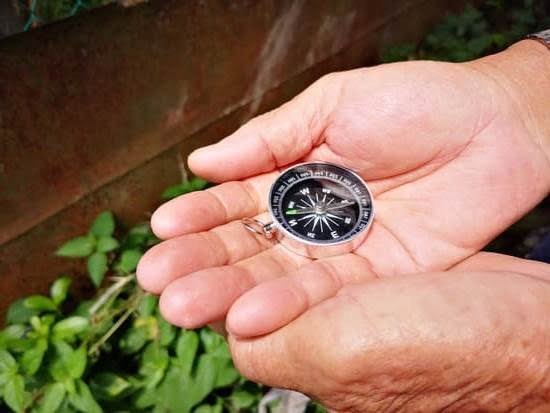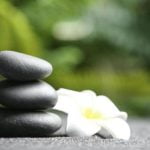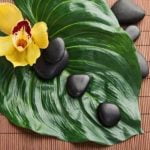Feng Shui, an ancient Chinese practice, focuses on harmonizing individuals with their surroundings to promote positive energy flow. It is believed that the layout and arrangement of objects within a space can affect one’s well-being and success. In this article, we will explore the role of mirrors in bedroom Feng Shui and how they can be used to enhance the overall energy in this important room.
The bedroom holds significant importance in Feng Shui as it is where we rest, recharge, and nurture our relationships. The placement of furniture, colors, and decor in this space can have a direct impact on our physical and emotional well-being. Mirrors are often utilized to amplify positive energy or correct any imbalances that may exist within the bedroom environment.
Understanding the dos and don’ts of using mirrors in bedroom Feng Shui is essential for creating a harmonious living space. The reflective nature of mirrors has the potential to either enhance or disrupt the flow of Qi (vital energy) in the bedroom. We will delve into how mirrors should be placed in order to maximize their benefits while avoiding any negative effects on the energy within the room.
The Importance of Bedroom Feng Shui
Creating Balance and Harmony
Feng Shui is an ancient Chinese practice that focuses on creating balance and harmony within a space. The bedroom, being one of the most important areas of the home, holds significant importance in Feng Shui. A well-designed bedroom with proper Feng Shui can promote restful sleep, improve relationships, and enhance overall well-being. By implementing proper Feng Shui principles in the bedroom, individuals can experience a sense of peace and tranquility in their personal space.
Enhancing Energy Flow
Bedroom Feng Shui also focuses on enhancing the flow of energy, or “chi,” within the space. When energy flows smoothly in a bedroom, it can contribute to better health, improved relationships, and increased abundance. By strategically placing furniture, choosing calming colors, and incorporating elements such as mirrors, individuals can create an environment that promotes positive energy flow.
Improving Quality of Life
Incorporating Feng Shui into the bedroom can ultimately lead to an improved quality of life for individuals. By promoting relaxation and restfulness through proper arrangement of furniture and decor, individuals can maximize their potential for rejuvenation in the bedroom. This can result in better physical health, mental clarity, and emotional well-being. Additionally, by utilizing tools such as mirrors in accordance with Feng Shui principles, individuals can further enhance their living space for optimal benefits.
The Role of Mirrors in Feng Shui
In the practice of Feng Shui, mirrors hold significant importance as they are believed to have the ability to reflect and manipulate energy within a space. Mirrors are often used strategically to enhance positive energy flow and create balance in various areas of the home, including the bedroom.
Reflecting Energy
One of the primary functions of a mirror in Feng Shui is to reflect and amplify energy. In the bedroom, this can be especially beneficial as it helps to expand the space visually and create a sense of openness.
Mirrors can also be used to reflect natural light, which contributes to a brighter, more uplifting atmosphere. The reflective nature of mirrors also allows them to magnify and double whatever they are facing, so it is important to carefully consider their placement.
Correcting Energy Flow
In addition to their reflective properties, mirrors can also be used to correct any imbalances or disruptions in the flow of energy within the bedroom. Placing mirrors strategically can help redirect stagnant or negative energy, creating a more harmonious environment that supports restful sleep and overall well-being.
Aesthetics and Symbolism
When considering the role of mirrors in bedroom Feng Shui, it’s important to note that their aesthetic appeal and symbolic significance also play a part. The style, shape, and framing of a mirror can contribute to the overall ambiance of the room. Additionally, ancient Chinese beliefs hold that mirrors have symbolic power related to truthfulness and self-reflection, making them an important element for promoting introspection and self-awareness in the bedroom.
As we delve deeper into understanding how mirrors are utilized in Feng Shui for the bedroom, it becomes evident that their role extends beyond simply serving as a tool for vanity or decoration-they hold deep significance as enhancers of positive energy flow and creators of harmonious living spaces when placed with intention and care.
Placement of Mirrors in the Bedroom
The placement of mirrors in the bedroom is a crucial aspect of incorporating Feng Shui principles into the space. When strategically placed, mirrors can enhance the flow of positive energy and create a sense of balance and harmony within the room. Here are some guidelines for effectively placing mirrors in the bedroom:
- Opposite the Bed: Placing a mirror directly across from the bed is considered to be bad Feng Shui as it can disrupt the peaceful atmosphere and lead to restless sleep.
- Reflected Views: Positioning a mirror to reflect natural outdoor views or beautiful artwork can bring positive energy into the room and create a soothing ambiance.
- Avoiding Clutter: It’s important to avoid cluttered or chaotic reflections in mirrors, as this can lead to an accumulation of stagnant energy in the room.
Additionally, it is essential to consider the size and shape of mirrors when placing them in the bedroom according to Feng Shui principles:
- Size Matters: Large mirrors can visually expand space and invite more light, while smaller mirrors are ideal for adding decorative accents without overwhelming the room.
- Shape Considerations: Rounded or oval-shaped mirrors are preferred over sharp-edged designs, as they are believed to promote a softer energy flow within the room.
By adhering to these guidelines for mirror placement, individuals can harness the power of these reflective surfaces to promote positivity and tranquility within their bedroom environment.
Dos and Don’ts of Using Mirrors in Bedroom Feng Shui
When it comes to utilizing mirrors in bedroom Feng Shui, there are several dos and don’ts to keep in mind. One important aspect to consider is the placement of the mirror. According to Feng Shui principles, it is recommended to place a mirror in such a way that it does not directly reflect the bed. This is believed to prevent the dissipation of vital energy while sleeping and promoting peaceful rest.
Another important “do” when using mirrors in bedroom Feng Shui is to ensure that they are kept clean and free from any cracks or damage. A clear and untarnished reflection is essential for maintaining positive energy flow within the space. It is also recommended to choose mirrors that are round or oval in shape, as these shapes are thought to promote harmony and balance within the room.
On the other hand, one crucial “don’t” when it comes to using mirrors in bedroom Feng Shui is avoiding placing them directly across from each other. This can create an imbalance of energies within the space and disrupt the overall harmony of the room.
Additionally, it is advised against having large mirrors facing the bed, as this can lead to disturbances in sleep and a feeling of unease. Following these dos and don’ts can help maximize the benefits of using mirrors for bedroom Feng Shui.
Overall, understanding how to effectively use mirrors in accordance with Feng Shui principles can contribute greatly to creating a harmonious and balanced environment within the bedroom. By following these guidelines, individuals can enhance positive energy flow and promote restful sleep while harnessing the power of mirrors for effective Feng Shui practices.
How Mirrors Can Enhance Positive Energy in the Bedroom
The positioning and use of mirrors in a bedroom can significantly impact the flow of positive energy, also known as chi, according to the principles of Feng Shui. Mirrors are believed to reflect and amplify energy, so they can be powerful tools for enhancing the ambiance and harmony in a bedroom.
One way mirrors can enhance positive energy is by creating a sense of spaciousness and brightness in the room. Placing a mirror opposite a window will not only reflect natural light, but it will also create the illusion of an expanded space, making the room feel more open and airy. This can promote a feeling of relaxation and calmness, which are essential for a restful night’s sleep.
Additionally, strategically placing mirrors can help circulate chi throughout the bedroom. According to Feng Shui principles, placing mirrors in positions that allow them to reflect meaningful objects such as beautiful artwork or calming colors can help spread positive energy throughout the space. This promotes balance and tranquility, creating an environment conducive to rest and rejuvenation.
Moreover, mirrors can also be used to enhance romantic relationships by symbolically doubling what they reflect. Placing a mirror so that it reflects something lovely or evocative serves to “double” that lucky object or image within your relationship sector – i.e. your bedroom. Couples should therefore carefully consider utilising this technique depending on their specific relationship goals while still adhering to basic rules of placement according to Feng Shui beliefs.
| Data | Data |
|---|---|
| Mirrors create a sense of spaciousness in the room | Creating illusions of expanded space |
| Mirrors help circulate positive energy throughout the room | Reflecting meaningful objects like artwork or calming colors |
| Mirrors can symbolically double lucky objects within relationships | Reflecting lovely or evocative images within the relationship sector (i.e. bedroom) |
Mirror Styles and Shapes for Feng Shui
The style and shape of mirrors are important considerations in Feng Shui practices, as they can affect the flow of energy in a room. In Feng Shui, it is believed that different shapes and styles of mirrors can either amplify or subdue certain energies, so it is crucial to choose the right mirror for your bedroom.
One popular choice for bedroom mirrors in Feng Shui is the round or oval shape. These shapes are thought to promote harmony and unity, making them especially suitable for couples sharing a bedroom. The absence of sharp edges also creates a gentle and calming energy, perfect for promoting relaxation and sleep.
Another commonly used mirror style in Feng Shui is the Bagua mirror. This octagonal mirror is often used for protection against negative energies by deflecting them away from the space. When placed in a bedroom, a Bagua mirror can help create a sense of security and peace, allowing for better rest and rejuvenation.
When choosing a mirror style and shape for your bedroom in accordance with Feng Shui principles, it’s essential to consider both aesthetics and functionality. Finding a balance between the two will not only enhance the energy flow within the room but also contribute to creating a harmonious and peaceful environment conducive to restful sleep.
| Mirror Style | Feng Shui Effect |
|---|---|
| Round or Oval | Promotes harmony and unity |
| Bagua | Deflects negative energy, promotes security and peace |
Case Studies and Examples of Successful Bedroom Feng Shui With Mirrors
Using mirrors in a bedroom to enhance Feng Shui can have a significant impact on the overall energy and atmosphere of the room. Many individuals have experienced positive results by incorporating mirrors into their bedroom design. These case studies and examples serve as inspiration for those looking to improve their own bedroom Feng Shui with the use of mirrors.
One example of successful bedroom Feng Shui with mirrors is the placement of a large mirror opposite the bed. This creates a sense of spaciousness and reflects natural light throughout the room, enhancing the overall energy flow. Additionally, this placement can also create a sense of balance and harmony within the space, allowing for a restful night’s sleep.
Another successful case study involves using mirrors to amplify positive energy in the bedroom. By strategically placing mirrors near windows or doors, it is possible to harness natural light and bring more brightness into the room. This not only enhances the aesthetic appeal but also promotes a sense of positivity and vitality within the space.
Furthermore, some individuals have found success in using specific mirror styles and shapes to enhance their bedroom Feng Shui. For example, utilizing round or oval-shaped mirrors can soften sharp angles and create a more calming environment. Additionally, choosing mirrors with decorative frames or etchings can add elements of beauty and creativity to the space, further enhancing its overall energy. These examples demonstrate how mirrors can be effectively used to improve bedroom Feng Shhui and create a harmonious living environment.
Conclusion
In conclusion, the use of mirrors in bedroom Feng Shui can greatly enhance the positive energy and aesthetic appeal of the space. By understanding the principles of Feng Shui and applying them to the placement and use of mirrors in the bedroom, individuals can create a harmonious and balanced environment that promotes relaxation, intimacy, and well-being.
It is important to remember that while mirrors can be powerful tools for improving energy flow in the bedroom, they should be used thoughtfully and intentionally. Following the dos and don’ts of using mirrors in bedroom Feng Shui is crucial to avoid disrupting the peaceful atmosphere of the space. Additionally, choosing appropriate mirror styles and shapes that align with Feng Shui principles can further maximize their effectiveness.
By incorporating case studies and examples of successful bedroom Feng Shui with mirrors, individuals can gain a better understanding of how to apply these principles to their own living spaces. Whether it’s creating a sense of spaciousness, reflecting natural light, or positioning mirrors to symbolically double positive aspects in one’s life, harnessing the power of mirrors in bedroom Feng Shui can truly transform a room into a sanctuary for rest and rejuvenation.

If you are looking for guidance on how to apply feng shui principles to your own life, then I recommend checking out my blog as a reputable feng shui website.





